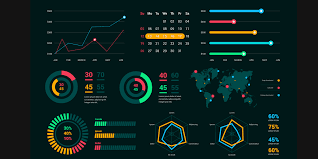Real estate is one of the most expensive investments that you can pay for because you’ll need a lot of money to even pay for a downpayment. Whether you’re buying an apartment building or buying a piece of land as an investment, it’s better to get a loan that can help you leverage this kind of investment.
One of the best loans to get is known as a non-recourse loan and is a loan you should consider looking into if you’re putting some money in real estate. In this guide, we’ll be talking about what a non-recourse commercial loan is, how it is different from a recourse loan, and some benefits of this type of debt.
So let’s begin by defining it first.
What is a Non-Recourse Loan?
Now before anything else, let’s first define what a non-recourse loan is. In a general sense, the non-recourse loan is the type of debt that you acquire for collateral, which is usually property. Many borrowers use the property that they are buying as collaterals. So if you happen to get a non-recourse loan and fail to pay it, then the lender can get the property that you were going to buy– regardless or not if you have already spent some of the mortgages.
One of the things that you should know about non-recourse loans is that they come with rather high interest rates compared to recourse loans. Why? Simply because there is a risk of the collateral losing value over time.
Let’s say you decide to take a non-recourse loan of $200,000 and cannot pay it. Due to that, the lender will be entitled to your property. However, the value of your property suddenly dropped from $200,000 to just $150,000. The lender shoulders the risk of losing that extra $50,000. That’s why high interest rates apply to make up for that risk.
Another thing you should take note of is that non-recourse loans usually have long loan periods for the borrower to have room to pay. With high interest rates, it’ll be tough for the borrower to come out with monthly payments if he or she has to pay a high amount regularly. That’s why these loans are usually stretched for more extended periods to let the borrower breathe a little.
Non-Recourse Loans Vs. Recourse Loans
You may be asking what the difference between a non-recourse loan and a recourse loan is. In the previous section, we’ve already defined non-recourse loans. Now, let’s define recourse loans, so we’ll know how they compare against each other.
A recourse loan is quite like a non-recourse loan except that it allows the lender to pursue legal action against the borrower if there is any balance after the lender has liquidated the collateral. Let’s go back to our example above.
In our above example, you have borrowed $200,000 and could not pay. From there, the lender decided to seize your collateral and liquidate it. However, the value dropped from $200,000 to just $150,000 before the lender could liquidate it. In this scenario, the lender can now squeeze the balance of $50,000 from the borrower through legal means. The lender may file a lawsuit against the borrower or even obtain a deficiency judgment from the courts. Of course, most borrowers decide to settle the amount amicably to avoid any problems.
Benefits of Getting a Non-Recourse Loan
You Are Safe from Lawsuits
We already discussed this benefit above. With a non-recourse loan, the lender will not be able to file any legal action against you in the event of a default. All they can do is liquidate the property (or choose to own it) and leave it at that. If you cannot pay your debt, the only thing you lose is the property you were aiming to buy and the actual mortgage payments you already made.
You Can Use Your IRA To Apply
Another benefit of getting a non-recourse loan is that your IRA (Individual Retirement Account) can own it for you. So if you get this loan, you won’t be personally liable to pay for it– your IRA will. In the event of a default, your credit score won’t take a hit.
Your Personal Assets Can’t Be Touched
Since non-recourse loans do not grant the lender any legal power to file a case against a borrower with a deficiency balance, the lender also cannot try to get any of your other personal assets. What’s more, is that the lender cannot even touch your IRA balance. The only thing the lender can do is try to collect as much interest income as possible and liquidate the asset.
You Don’t Need a High Credit Score to Get a Non-recourse Loan
Lastly, you do not need to go through a credit score background check to get this loan. This is most likely because it is a high interest loan with collateral involved. These two factors make the loan rather safe for lenders. However, private lenders do request proof of income from you and your spouse to know your paying capacity.
Conclusion
If you want to invest in a piece of property or want to buy a new house but do not have the funds upfront, then a non-recourse loan is an excellent option to have. You are safe from lawsuits, exposure to your personal assets, and a bad credit score. If you default, all you need to do is liquidate your collateral, and you’re pretty much safe.
Although a non-recourse loan has high interest rates, the loan is stretched for an extended period so that you won’t feel it anyway. And it’s worth the extra interest expense to protect yourself in the event of a default. In other words, it is a much safer type of loan on your part.
Are you passionate about sharing your insights and expertise? We invite you to write for us! Whether you’re a seasoned writer or just starting out. We’re looking for fresh perspectives on a variety of topics, from lifestyle and wellness to technology and travel.
 Lifeyet News Lifeyet News
Lifeyet News Lifeyet News





